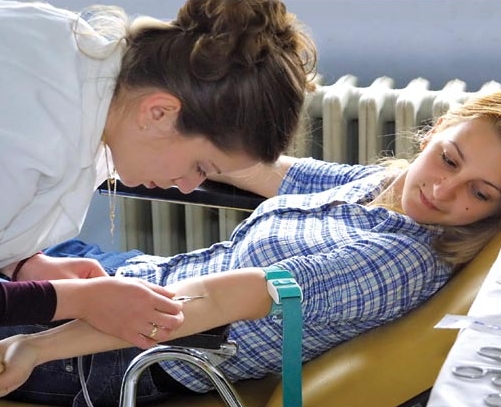**Title: Phlebotomy Technician Job Description: Essential Duties and Responsibilities**
**Introduction:**
If you are considering a career as a phlebotomy technician, it is essential to understand the job description and responsibilities that come with this role. Phlebotomy technicians play a crucial role in the healthcare industry by drawing blood for tests, transfusions, research, or blood donations. In this article, we will explore in detail the job description of a phlebotomy technician, including their duties, skills required, and the benefits of pursuing this career path.
**Job Description:**
Phlebotomy technicians are responsible for collecting blood samples from patients, labeling the samples correctly, and ensuring that they are stored properly for testing. Their main job duties include:
1. **Collecting Blood Samples:** Phlebotomy technicians are trained to draw blood from patients using various techniques such as venipuncture, finger sticks, or heel sticks.
2. **Labeling and Storing Samples:** It is essential for phlebotomy technicians to accurately label blood samples and ensure that they are stored correctly to maintain their integrity for testing.
3. **Patient Interaction:** Phlebotomy technicians must have excellent communication skills to explain the blood drawing process to patients, calm nervous individuals, and ensure a positive experience.
4. **Maintaining Equipment:** Phlebotomy technicians are responsible for maintaining and sterilizing their equipment to prevent infections and ensure the safety of patients.
5. **Data Entry:** Phlebotomy technicians may also be required to enter patient information, test results, and other relevant data into electronic health records systems.
**Skills Required:**
To excel as a phlebotomy technician, individuals must possess a unique set of skills, including:
1. **Attention to Detail:** Accuracy is crucial in phlebotomy to ensure that the right samples are collected from the correct patients.
2. **Empathy:** Phlebotomy technicians must have empathy and compassion for patients who may be anxious or fearful of blood draws.
3. **Technical Skills:** Knowledge of phlebotomy techniques, equipment, and safety protocols is essential for successful blood collection.
4. **Communication:** Strong communication skills are necessary to interact with patients, healthcare professionals, and laboratory staff effectively.
5. **Organizational Skills:** Phlebotomy technicians must be organized to label, store, and track multiple blood samples efficiently.
**Benefits of Pursuing a Career in Phlebotomy:**
There are several benefits to pursuing a career as a phlebotomy technician, including:
– **Job Stability:** The demand for phlebotomy technicians is expected to grow as healthcare facilities require blood tests for diagnosis and treatment.
– **Flexible Work Environment:** Phlebotomy technicians can work in various settings such as hospitals, clinics, laboratories, or blood donation centers.
– **Personal Fulfillment:** Helping patients by providing accurate blood samples for testing can be rewarding and fulfilling.
– **Career Advancement:** Phlebotomy technicians can advance their careers by pursuing further education or certifications in related fields.
**Conclusion:**
the job description of a phlebotomy technician involves collecting blood samples, labeling and storing samples, patient interaction, equipment maintenance, and data entry. Success in this role requires attention to detail, empathy, technical skills, communication, and organizational abilities. Pursuing a career in phlebotomy offers job stability, a flexible work environment, personal fulfillment, and opportunities for career advancement. If you are interested in healthcare and enjoy working with patients, becoming a phlebotomy technician may be the perfect career path for you.
